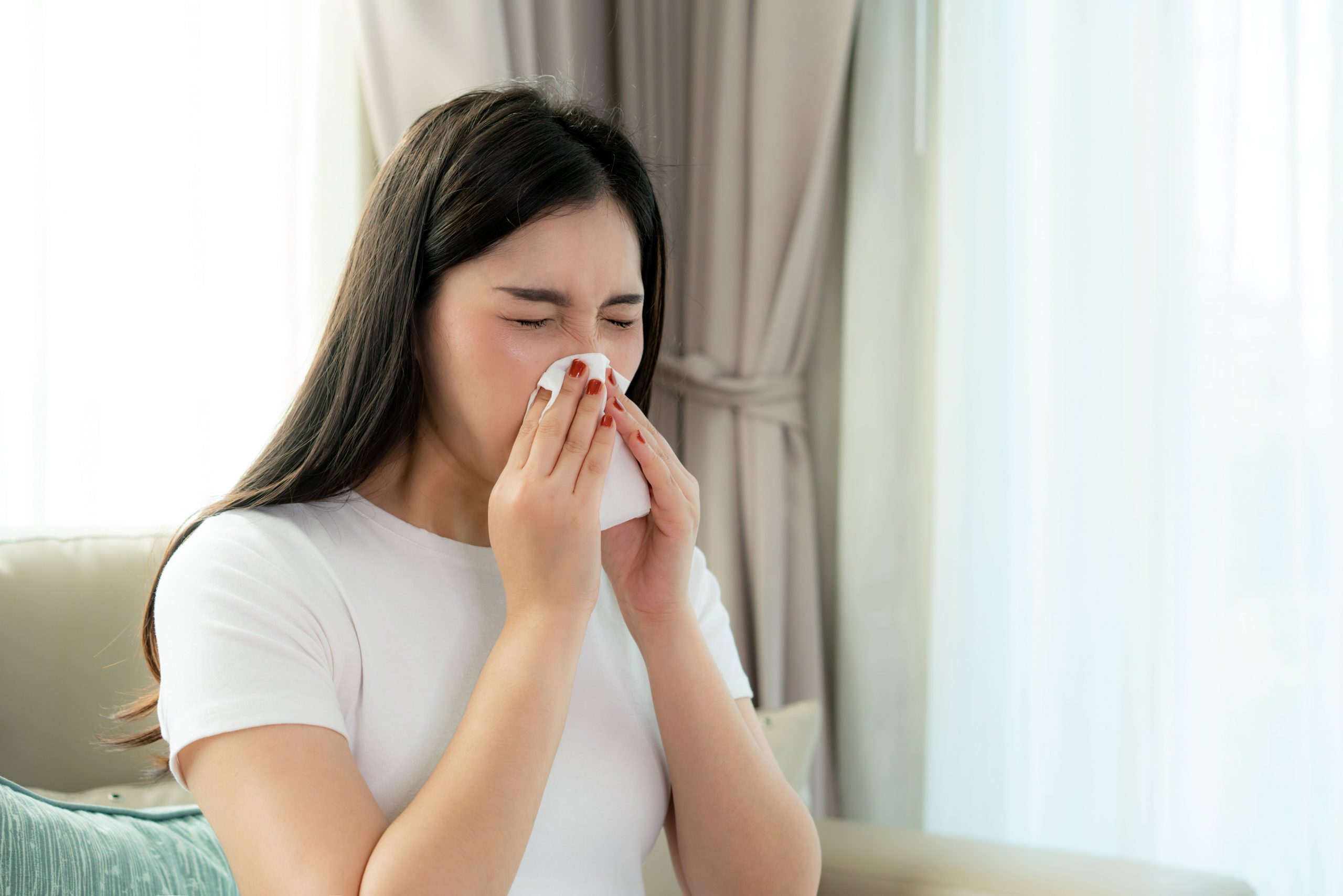This article has been verified medically by Dr Samuel Yeak, otorhinolaryngologist and ENT specialist at Amandela ENT Head And Neck Centre Singapore, Mount Elizabeth Novena Hospital (Singapore).
About the Doctor
Rhinitis, allergies or a sinus infection can cause a runny or blocked nose and sneezing. However, sinus infections have added symptoms like a headache, fever, painful cheeks, yellowish mucus, persistent loss of smell or even a bad smell in the nose.
1. Allergic rhinitis (Nasal allergy)
Allergic rhinitis, or nasal allergy, is a common nose condition triggered by allergens like dust mites, pet dander or pollen. It can cause an itchy nose and itchy, watery eyes.
If you have minor allergies, your family doctor can prescribe allergy medications and nasal sprays. If your symptoms are more persistent, you may want to consider allergy testing. However, if your symptoms are more serious, please consult an ENT specialist. A nasoendoscope will be used to examine the inside of your nose and throat to assess your condition.
Treatment options
Allergen avoidance
Reduce your exposure to allergens by:
- Keeping your house free of dust, cleaning floors, furniture and mattresses regularly.
- Throwing out old pillows, bolsters, rugs and soft toys.
- Using dust-mite proof covers and wash your bed sheets weekly with hot water.
- Using a HEPA (high-efficiency particulate air) filter.
- Covering your mouth and nose in grassy, flowered areas or during haze season.
Antihistamines and nasal decongestants
These are often prescribed for milder cases, and provide short-term treatment.
Nasal steroids
Sprayed directly into your nose, nasal steroids are an effective and safe long-term treatment option even in children as young as three years old. Nasal steroids also do not need to be taken for life, and patients often stop taking them after two or three months if they recover well.
Immunotherapy
Allergy shots are another form of long-term treatment. Immunotherapy medication can also be placed under the tongue, in the form of sublingual immunotherapy (SLIT).
2. Non-allergic rhinitis
Non-allergic rhinitis affects the nose and can be triggered by acute infections like the cold or flu, temperature or humidity changes, or be associated with a deviated septum. Symptoms include chronic sneezing and a congested, drippy nose.
If your allergy test comes back negative, you may be diagnosed with non-allergic rhinitis.
Treatment options
Avoiding triggers
If your symptoms are caused by environmental factors like extreme temperatures, humidity or exposure to smoke, try to avoid these situations.
Saline rinse kits and sprays, used once a day, can thin mucus and clean bacteria from nasal passages.
Nasal steroids
These can help to relieve your congestion over a number of weeks.
3. Sinusitis
Sinus infection (known as sinusitis or rhinosinusitis) takes place when both the nose and sinuses (pockets of air around the face) are infected.
Treatment options
Acute sinusitis
This is of recent onset and usually caused by viruses in the beginning. It may resolve without any treatment and your family doctor will usually just prescribe symptomatic treatment. If it persists for more than a week, there may be secondary bacterial infection and antibiotics may be necessary.
Chronic sinusitis
This lasts for at least six weeks, and may require more prolonged antibiotics and steroid nasal sprays.
In some cases, surgeries like Functional Endoscopic Sinus Surgery (FESS) or Balloon Sinusplasty may be performed.










